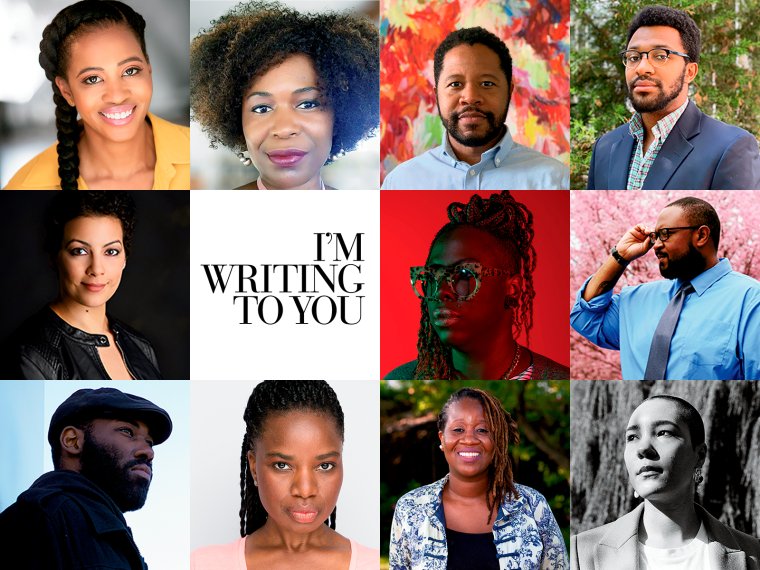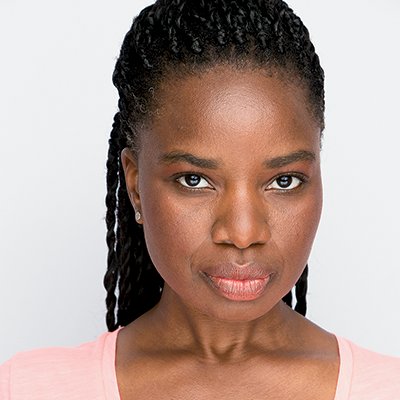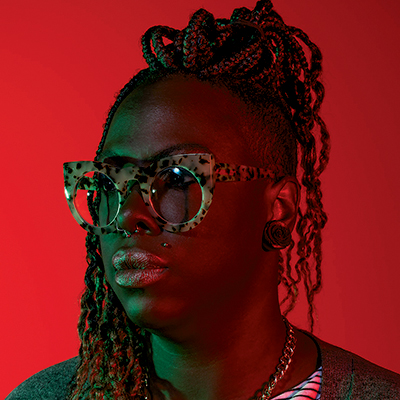As writers speak up, protest, and stand together with those who seek justice for George Floyd, Ahmaud Arbery, Breonna Taylor, Tony McDade, and countless others who have been murdered, marginalized, and repressed as a result of white supremacy and anti-Black racism, we acknowledge that our commitment to fighting for racial justice must extend beyond the page. To that end, we are compiling a list of resources that we hope will help you in your own response to racial injustice and police violence. We will be updating this list as we learn of new resources. (If you know about a resource not on this list, please send an e-mail to editor@pw.org.)
Creative Ideas for Engagement
Organized by Nate Marshall and José Olivarez, a group of over twenty poets is sending personalized poems to anyone who donates $20 or more to any bail fund. Requests can be sent to poemsforthefree@gmail.com.
Poets Kaveh Akbar and Paige Lewis raised more than $10,000 by drawing original comics for anyone who made a donation of $50 or more to any bail fund.
Poet Cameron Awkward-Rich gave copies of his books (up to thirty copies total) to anyone who donated at least $25 to the Okra Project, the Black Visions Collective, or the Emergency Release Fund.
Poet Danez Smith is collecting money via Venmo to distribute food, supplies, toys for kids, and more to community members in Minneapolis and the rest of the Twin Cities.
Poets Safia Elhillo and Hieu Minh Nguyen raised money for People’s Breakfast Oakland, Bay Area Anti-Repression Committee Bail Fund, and Black Earth Farms by offering one-on-one poetry workshops or readings and copies of books, respectively, to anyone who donated to the funds.
Poet Kate O’Donoghue offered three hand-written poems or short prose passages to people who donated $10 to one of a group of Black-led queer organizations or mutual aid funds.
Publishers Weekly reported on how independent bookstores across the country are supporting the movement for Black lives. Strategies included donating to bail funds, curating reading lists, and opening physical space to protestors and organizers.
Throughout the pandemic, Brooklyn-based literary nonprofit Wendy’s Subway has organized regular Wednesday writing nights. On June 3 the organizers chose a prompt to express solidarity with protestors: “If you’re not at a protest tonight, join us as we imagine abolishing the prison-industrial complex, imagine defunding the police, imagine an end to senseless Black death.”
The Center for the Art of Translation and Two Lines Press matched donations up to $10,000 to the Bail Project, Black Lives Matter, Campaign Zero, and the Equal Justice Initiative.
Writer Hanif Abdurraqib will donate 100 percent of his book royalties from all copies of his collection A Fortune for Your Disaster sold in 2020 to the Okra Project.
Kwame Alexander, Jason Reynolds, and Jacqueline Woodson organized the Kidlit Rally for Black Lives, which was hosted by the Brown Bookshelf on Facebook Live on June 4, 7 EDT. More than twenty-five authors, publishers, and artists gathered to “unite in support of Black lives, speak to children about this moment, answer their questions, and offer ideas about steps we can all take going forward.”
Coffee House Press announced on June 4 that it will donate 10 percent of all profits from website sales to National Bail Out for an indefinite period.
Workers from across the publishing industry are holding a day of action on June 8 in solidarity with the protests around the country. Participants are taking the day off from work to devote time to support the Black community through protesting, organizing, and fundraising. Organizers suggest donating one day’s pay to a relevant fundraiser, and considering making the contribution a monthly commitment. Publishers Weekly reported on the effort.
Independent publisher Ugly Duckling Presse printed protest signs available for pickup at their Brooklyn headquarters.
Center for Books Arts has also printed free posters for pickup and is hosting a free online workshop on June 13: Posters for Protest.
Broadside PR offered five free one-hour publicity consultations to Black authors with publishing contracts.
Writers Jessica Keener and Lise Haines launched the Writers Against Racial Injustice fund-raiser on Facebook for the Equal Justice Initiative. The first thirty people to donate more than $100 received a copy of Jabari Asim’s essay collection We Can’t Breathe.
Sundress Academy for the Arts is donating $2 from every book sale, entry fee, or application fee to support the Loveland Therapy Fund, which provides financial assistance to Black women and girls nationally seeking therapy.
Reading Lists
Black Liberation Reading List, compiled by the Schomburg Center for Research in Black Culture at the New York Public Library.
An Antiracist Reading List by Ibram X. Kendi, the director of the Antiracist Research & Policy Center and author of Stamped From the Beginning: The Definitive History of Racist Ideas in America. (New York Times)
Do the Work: An Anti-Racist Reading List by Layla F Saad, author of Me and White Supremacy. (Guardian)
A Nonfiction Anti-Racist Reading List (Publishers Weekly)
City Lights Bookstore’s Antiracist Reading List by the venerable independent bookseller in San Francisco.
What Is an Anti-Racist Reading List For? Lauren Michele Jackson, author of White Negroes: When Cornrows Were in Vogue. . . and Other Thoughts on Cultural Appropriation, questions the sudden proliferation of anti-racist reading lists, for whom and for what purpose they serve.
The University of Minnesota Press’s collection of antiracist books is available to read online for free through August 31, 2020.
Investing in Futures: Beyond Policing is “a free workshop of structured conversation, imagination, and play, designed in urgent response to the injustices and racism that resulted in the death of George Floyd which spurred protests across all 50 states and around the globe.”
Resources for Activism
Antiracist Research and Policy Center at American University “aims to attract support from visionary philanthropists and foundations to fund teams of scholars, policymakers, journalists, and advocates to examine racial problems anew, innovate and broadcast practical policy solutions, and work with policymakers to implement them.”
Black Lives Matter is “a global organization whose mission is to eradicate white supremacy and build local power to intervene in violence inflicted on Black communities by the state and vigilantes. By combating and countering acts of violence, creating space for Black imagination and innovation, and centering Black joy, we are winning immediate improvements in our lives.”
Campaign Zero is a “data-informed platform that presents comprehensive solutions to end police violence in America. It integrates community demands and policy recommendations from research organizations and President Obama’s Task Force on 21st Century Policing.” The Campaign also runs the “8 Can’t Wait” campaign, which lists eight policies that can reduce police violence, and provides information on which policies your city adopts and how to contact your mayor or sheriff.
The Equal Justice Initiative is focused on ”ending mass incarceration and excessive punishment in the United States, to challenging racial and economic injustice, and to protecting basic human rights for the most vulnerable people in American society.”
The NAACP, the National Association for the Advancement of Colored People, works to “secure the political, educational, social, and economic equality of rights in order to eliminate race-based discrimination and ensure the health and well-being of all persons.”
Unicorn Riot is a nonprofit media organization of artists and journalists “dedicated to exposing root causes of dynamic social and environmental issues through amplifying stories and exploring sustainable alternatives in today’s globalized world.”
Actionable Items for New Yorkers is an accessible Google Doc of concrete actions, including places to donate, scripts for calling local officials, and opportunities for volunteering.
Defund12.org is a crowd-sourced tool for generating an e-mail demanding “government officials and council members to reallocate egregious police budgets towards education, social services, and dismantling racial inequality.”
Mutual Aid
When the COVID-19 pandemic arrived in the United States, many communities turned to existing mutual aid programs or started their own. Vice explains that mutual aid is when “communities take on the responsibility for caring for one another, rather than forcing individuals to fend for themselves.” Mutual aid systems also typically lack a centralized hierarchy, and are instead run by volunteers.
As the fight for racial justice causes further emotional and financial strain on Black communities, mutual funds are emerging as one opportunity for direct action. For instance, one group founded the short-term Disability Justice Mutual Aid Fund, as reported in Variety, which offers aid to disabled protest organizers. One longstanding network is Mutual Aid NYC, a “multi-racial network of people and groups building support systems for people in the New York area during the COVID-19 pandemic and beyond.”
Different localities might have several different mutual aid funds, but if you can’t find one, here’s a guide to digital tools for mutual aid groups to help kickstart your own.
Legal Defense & Bail Funds
Note: A number of organizations have reported an unprecedented volume of donations due to media coverage, and some are choosing to ask prospective donors to redirect their contributions elsewhere. Consult each website for updates before you donate.
The Bail Project is a nonprofit “designed to combat mass incarceration by disrupting the money bail system—one person at a time.” They are providing bail for protestors in cities where they have offices.
Brooklyn Community Bail Fund is “committed to challenging the racism, inequality, and injustice of a criminal legal system and immigration and deportation regime that disproportionately target and harm low-income communities of color.”
The Community Justice Exchange “develops, shares and experiments with tactical interventions, strategic organizing practices, and innovative organizing tools to end all forms of criminalization, incarceration, surveillance, supervision, and detention.” It hosts the National Bail Fund Network, a “formation of over sixty community-led bail and bond funds that are part of campaigns to end pretrial and immigration detention.”
Minnesota Freedom Fund “pays criminal bail and immigration bond for those who cannot afford to as we seek to end discriminatory, coercive, and oppressive jailing.”
The National Bail Out collective is “a Black-led and Black-centered collective of abolitionist organizers, lawyers and activists building a community-based movement to support our folks and end systems of pretrial detention and ultimately mass incarceration.”
The American Civil Liberties Union’s Racial Justice Program aims “to preserve and extend constitutionally guaranteed rights to people who have historically been denied their rights on the basis of race.”
Southern Poverty Law Center is a nonprofit legal advocacy organization “specializing in civil rights and public interest litigation. Based in Montgomery, Alabama, it is known for its legal cases against white supremacist groups, its classification of hate groups and other extremist organizations, and for promoting tolerance education programs.”
The mission of the National Lawyers Guild is “to use law for the people, uniting lawyers, law students, legal workers, and jailhouse lawyers to function as an effective force in the service of the people by valuing human rights and the rights of ecosystems over property interests.” The Guild is best known for its work defending the rights of protesters through the Mass Defense and Legal Observer Programs, “which have been providing legal support for movements for social justice for fifty years. Guild lawyers, law students, and legal workers observe police actions during protests, provide Know Your Rights trainings, track arrestees through the legal system, and provide free attorneys for protest-related cases.” The NLG has published many analyses on the right to dissent, including Punishing Protest: Government Tactics that Suppress Free Speech (2007), Policing of Political Speech (2010), and Developments in the Policing of National Special Security Events (2013), and provides free Know Your Rights handbooks for encounters with law enforcement in English, Spanish, Arabic, Bengali and Urdu.
The BLACK TRANS LEGAL and CARE FUND by PEACE OUT LOUD is “a fund collecting bail, medical and other necessities for Black Trans Activists” in the San Francisco Bay Area.
Other Resources
Here’s Where You Can Donate to Help Protests Against Police Brutality (Rolling Stone) is a list of bail funds, legal aid, and other organizations “working to help activists seeking justice for George Floyd and other victims of police violence.”
Social Justice Resources for the Book Business (Publishers Weekly)
The Smithsonian’s National Museum of African American History and Culture has launched Talking About Race, an online portal of digital tools, exercises, videos, scholarly articles, and multimedia resources to help individuals, families, educators, and communities talk about racism, racial identity, and the way these forces shape every aspect of society and culture.
A Place to Start is “an incomplete list of resources and organizations for fighting racism and supporting justice and equality” compiled by the Museum of Modern Art.




